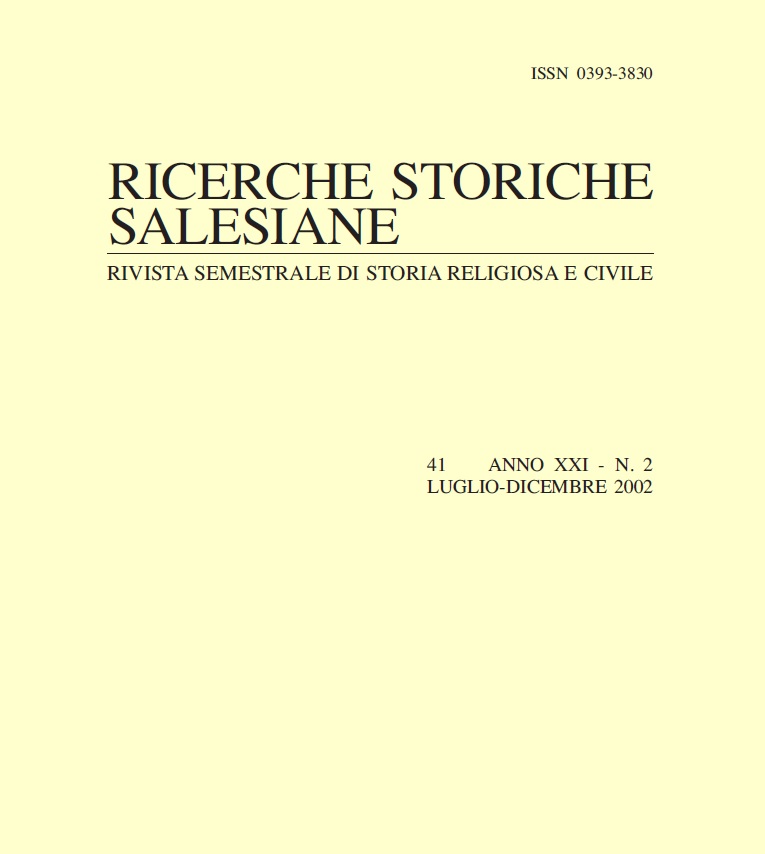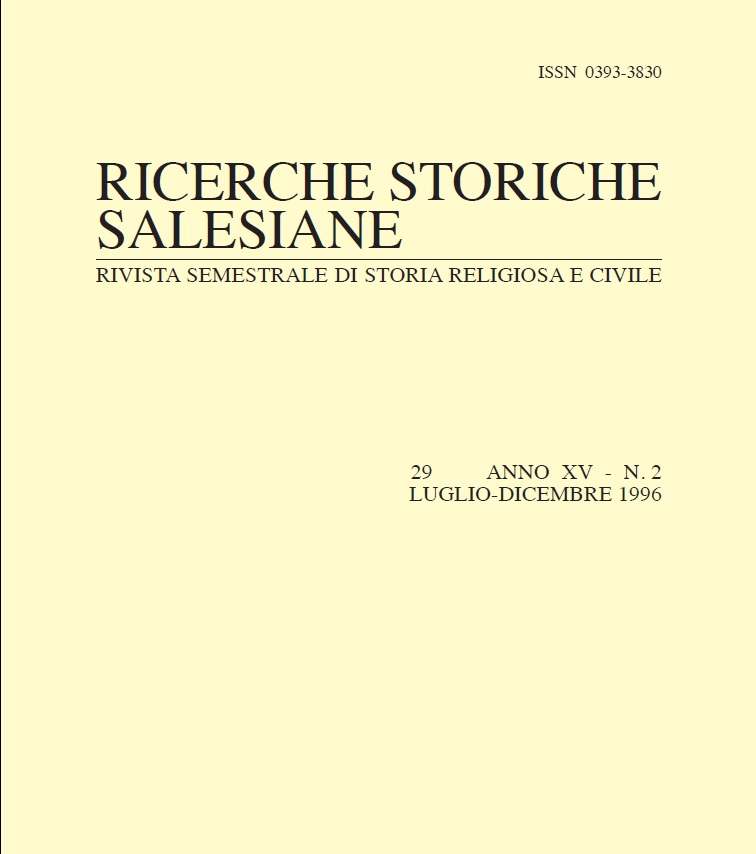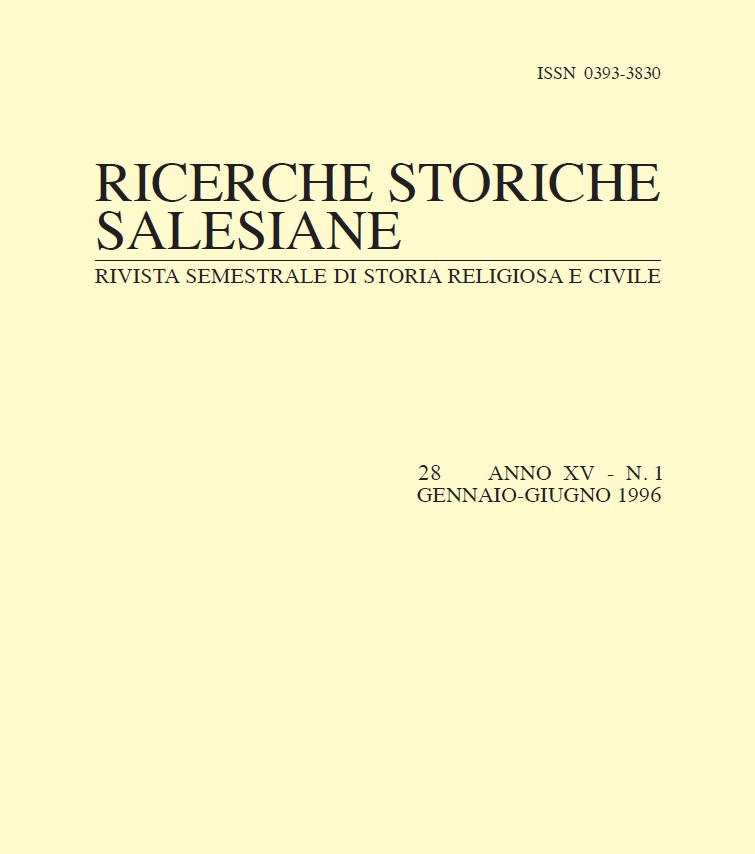Le quasi 700 lettere inedite offerte dall’edizione critica dell’Epistolario di don Bosco – giunta al terzo volume e di cui è in corso di stampa il quarto – sembra offrire agli studiosi e agli appassionati una serie di dati e di informazioni tali da apportare un apprezzabile e innovativo contributo alla conoscenza della vita, della personalità e dell’operato del santo torinese.
Continue reading “Francesco Motto – Verso una storia di don Bosco più documentata e più sicura”










